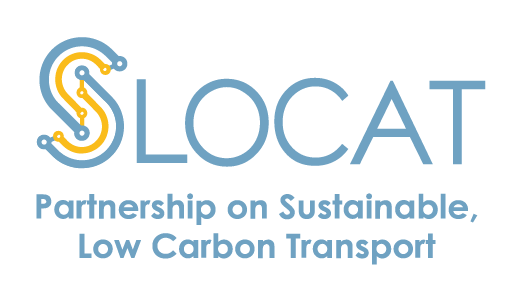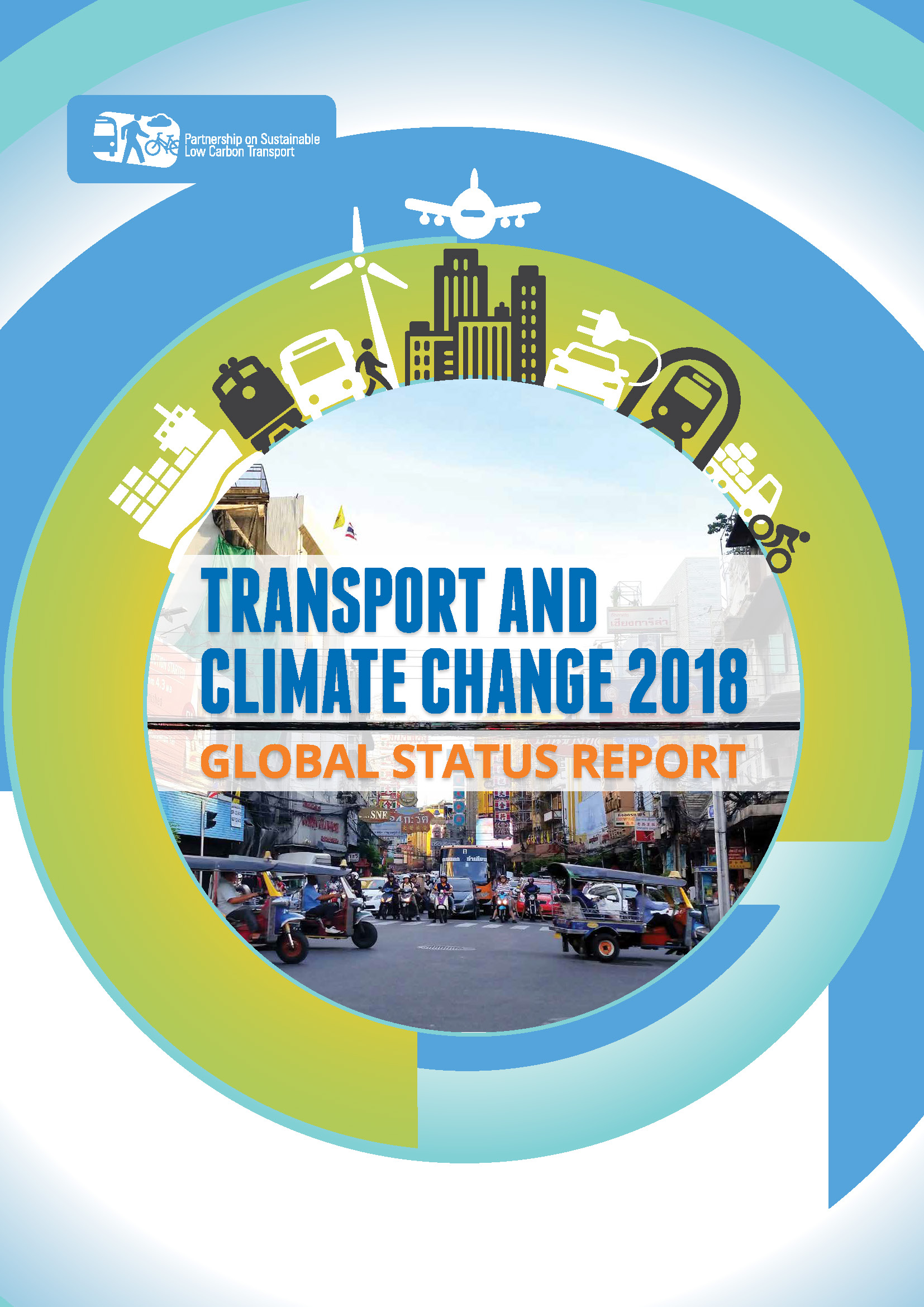About the Report
The SLOCAT Transport and Climate Change Global Status Report – 2nd edition tells the global and regional stories of where we are and where we need to get to urgently on climate action in the transport sector. With contributions from more than 150 world-class experts and organisations, it is a one-stop shop for the latest available data, targets and developments on transport demand, emissions, policies and measures – showing that it is imperative to accelerate radical action for sustainable transport and climate in this time of unprecedented global change.
This SLOCAT Transport and Climate Change Global Status Report – 2nd edition, launched in June 2021, aims to capture data and trends from the period between 2018 and early 2021. Throughout the report, the most recent publicly accessible data were used. These data are also provided in the Transport and Knowledge Base (TraKB), an open-source database that has been curated by SLOCAT over the years and that has been updated in conjunction with this second edition of the report.
The report intends to provide a balanced perspective and examples of policy measures, targets, etc. across both the Global North and South. Illustrative measures and case studies from different geographies are provided, with the aim of emphasising new activities in developing and emerging economies where possible.
This edition of the report was guided by a global strategy team consisting of 20 experts from development agencies, intergovernmental organisations, multilateral development banks, multi-stakeholder partnerships, non-governmental organisations, United Nations regional commissions and research organisations. The creation of this report also has relied on the expertise of more than 100 individual contributors as special advisors, section authors, feedback team members and peer reviewers, among other roles (see Acknowledgements).
The report has been made possible thanks to financial support from Agence Française de Développement (AFD) and Deutsche Gesellschaft für Internationale Zusammenarbeit (GIZ).
How to navigate this report
Modular approach:
While the report can be downloaded as a single file and read from start to finish, sections of interest can also be accessed individually via this website.
Structure:
The report is divided into five main sections. Sources for the information provided are listed at the end of each section, and cross-references among sections are included where relevant. The five main sections are as follows:
Executive Summary
The Executive Summary summarises the trends and conclusions of the report and highlights threats, opportunities and uncertainties for climate action in the transport sector. The Summary describes escalating transport demand and emission trends through 2019 as well as the temporary disruption to these trends following the onset of the COVID-19 pandemic in 2020. The Summary presents three scenarios for climate action in the transport sector: 1) following a business-as-usual approach to mobility patterns and investments; 2) continuing incremental progress on mitigation and increasing adaptation measures; and 3) creating a radical change in transport behaviour and investment. The Summary underscores the imperative of radical change to put transport decarbonisation on the right track.
The remaining sections are broken down into relevant sub-sections, each of which highlights key findings on transport demand, emissions, policy measures and the impacts of the COVID-19 pandemic.
Section 1: Global Overview
Section 1 – Global Overview examines progress towards decarbonising transport on a global scale and also includes sub-sections on each of the six global regions as defined by United Nations classification: Africa, Asia, Europe, Latin America and the Caribbean, North America and Oceania.
Section 2: Transport Demand, Emissions and Targets
Section 2 – Transport Demand, Emissions and Targets assesses transport demand and emission trends in more detail and showcases low-carbon pathways for 2050, with a focus on the various transport modes and their impact on emissions. The sub-sections outline the demand trends and emission growth for key areas such as urbanisation, infrastructure development, carbon efficiency of transport modes, and the decoupling of economic prosperity and emissions.
Section 3: Responses to Address Climate Change in the Transport Sectorere
Section 3 – Responses to Address Climate Change in the Transport Sector details transport decarbonisation within climate and development plans such as the Nationally Determined Contributions and Long-Term Strategies under the Paris Agreement. It then outlines climate mitigation and resilience actions across 10 major thematic areas: sustainable mobility planning and transport demand management, walking and cycling, urban passenger and freight transport, passenger and freight railways, shared mobility services, fuel economy, electric mobility, renewable energy in transport, aviation and shipping.
Section 4: Financing Climate Action in Transport
Section 4 – Financing Climate Action in Transport provides an overview of the current investment landscape, showing how climate finance and national investments for sustainable transport modes have developed in recent years.
Focus Features
Seven Focus Features put a spotlight on important cross-cutting issues: improving access to opportunities, adaptation policy measures in the transport sector, behavioural change in transport as a result of the COVID-19 pandemic, gender and sustainable mobility, the health impacts of transport, paratransit as a complement to formal transport networks, and multistakeholder mobilisation for climate action.
Country Fact Sheets
The Transport and Climate Change Global Status Report – 1st edition was released in December 2018 with the support of more than 20 authors, 40 contributors and 50 peer reviewers from more than 30 organisations. Since its release, the report has been a key resource for policy advocacy, training and outreach activities on transport and climate change.
About the SLOCAT Partnership

SLOCAT is the international multi-stakeholder partnership powering the sustainable, low-carbon transport revolution with ambition. solutions and collaboration. Our mission is to enable collaborative knowledge and action for sustainable, low carbon transport and bring the voice of the movement into international climate change and sustainability processes.
Our Partnership engages a vibrant international, multi-stakeholder ecosystem of over 90 entities across transport sectors associations, knowledge and academia, governments, multilateral organisations, NGOs, philanthropy and industry; as well as a large community of world-class experts and change-makers.
Disclaimer
SLOCAT releases issue papers and reports to enable collaborative knowledge and action for sustainable, low carbon transport. While SLOCAT papers and reports have benefited from the considerations and input from the SLOCAT community, they do not necessarily represent a consensus among network participants on any given point. Although the information given in this report is the best available to the authors at the time, SLOCAT and its participants cannot be held liable for its accuracy and correctness. The designations employed and the presentation of material in the maps in this report do not imply the expression of any opinion whatsoever concerning the legal status of any region, country, territory, city or area or of its authorities, and is without prejudice to the status of or sovereignty over any territory, to the delimitation of international frontiers or boundaries and to the name of any territory, city or area.
